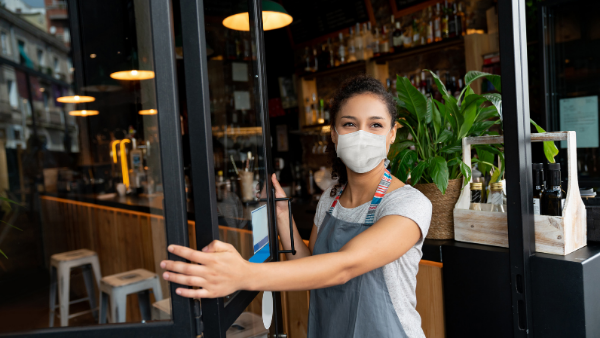Authors
In the throes of the national lockdown back in spring 2020, we were issuing multiple updates each week, as everyone tried to keep abreast of the consistently changing guidance. As the lockdown eased, and we took our first tentative steps into the “new normal”, the landscape seemed to stabilise and, as a result, you heard much less from us!
Unfortunately, the last few weeks have seen a noticeable rise in COVID-19 cases, and local lockdowns are multiplying. With the winter months approaching, there is a risk that the pandemic will see a “second wave”, overwhelming the NHS’ resources at a time of the year when other illnesses are already more prevalent.
In response to this accelerating risk, the Prime Minister has announced new measures which aim to prevent the continued spread of COVID-19, and which are likely to be in place until March 2021.
Working from home (WFH)
The WFH position has reverted to that which we encountered in the early stages of lockdown.
Office workers who can work effectively from home should now do so. Individuals should only travel to their place of work where they cannot carry out their role from home. Those working in public sector ‘essential services’, which includes education settings, should continue to travel to work where necessary. In addition, there is an express stipulation that employers must not knowingly require or encourage someone who is being required to self-isolate to come to work.
Over the past weeks and months, businesses have been slowly increasing their office capacity, and many employees have been attending their place of work, even where they could effectively work from home, on a rota based system. One of the ill effects felt by many employees by working from home was the lack of social interaction, and returning to the office, even on a part-time basis, has helped to alleviate this sense of isolation.
Although the guidance issued on the back of Boris’ recent announcement is rather generic, our interpretation is that such rota systems should be temporarily abandoned for a whole scale return to working from home, with the exception of any members of staff who need to be in the office in order to carry out their duties. Permitting employees to remain in the office without a legitimate reason may cause unwanted attention and criticism towards your business, in addition to being a likely breach of the new rules. With the spread of COVID-19 now increasing again, having more than essential members of staff visiting your office heightens the risk of transmission and the likelihood that significant numbers of your workforce may be out of action in the instance of a positive case.
Early closure of certain businesses
From 24 September 2020, businesses selling food or drink (including takeaways), social clubs, casinos, bowling alleys, amusement arcades and other indoor leisure facilities, funfairs, theme parks, adventure parks and bingo halls, must be closed between 10pm and 5am.
In the case of takeaways, delivery services can continue after 10pm.
Display of ‘QR’ Code
From 24 September 2020, businesses will be required to display the official NHS QR code posters, so that customers or clients can ‘check-in’ at their premises as an alternative to providing their contact details.
Face Coverings
Staff working in the hospitality and retail sectors will now be required to wear a face covering, unless they are exempt because of an underlying health condition.
Previous guidance stating that face coverings and visors should be worn in close contact services will, from 24 September 2020, become law. Close contact services include hairdressers, beauticians, tattooists, and sports and massage therapists.
There is no change to the guidance on face coverings in offices, which is broadly that they are not required, subject to the employer’s compliance with its legal obligation to provide a safe working environment and adherence to the Government’s Coronavirus Workplace Settings Guidance for the relevant type of workplace. However, employers should not prevent employees from wearing face coverings if they wish to do so.
Fines for non-compliance
From 28 September 2020, a wider range of leisure and entertainment venues, services provided in community centres, and close contact services, will be legally obliged to comply with the COVID-Secure guidance, and fines of up to £10,000 will be issued for repeated breaches. We will provide you with more information on this as and when it is released.
At present, these are only headline measures, and we anticipate that more guidance about the same will be issued in due course. We will update you once more information is available.
This article is for information purposes only and is not a substitute for legal advice and should not be relied upon as such. Please contact James Baker or Rachael Lloyd to discuss any issues you are facing.
Authors
Employment law insights webinar: navigating change and compliance
We are excited to invite you to our upcoming webinar, where we will delve into critical updates and changes in employment law that are essential...



